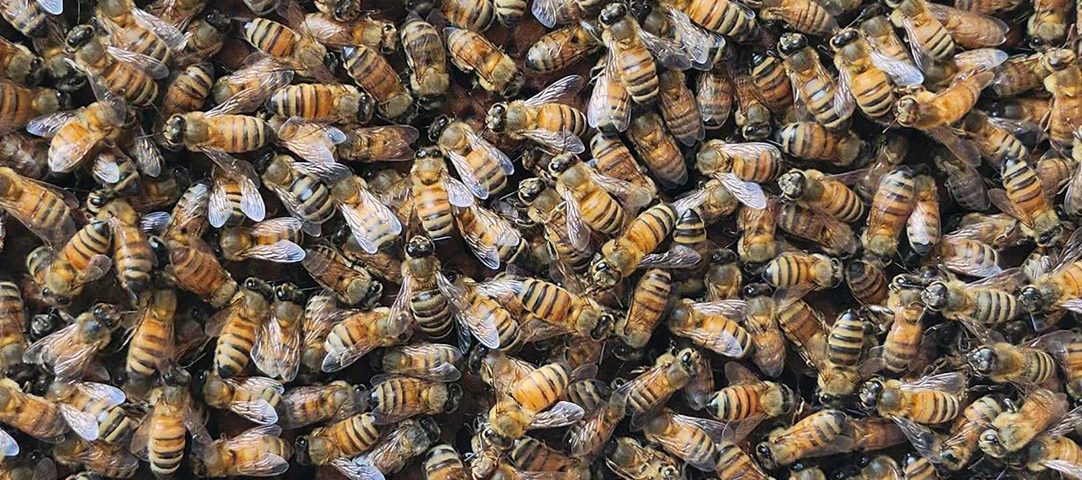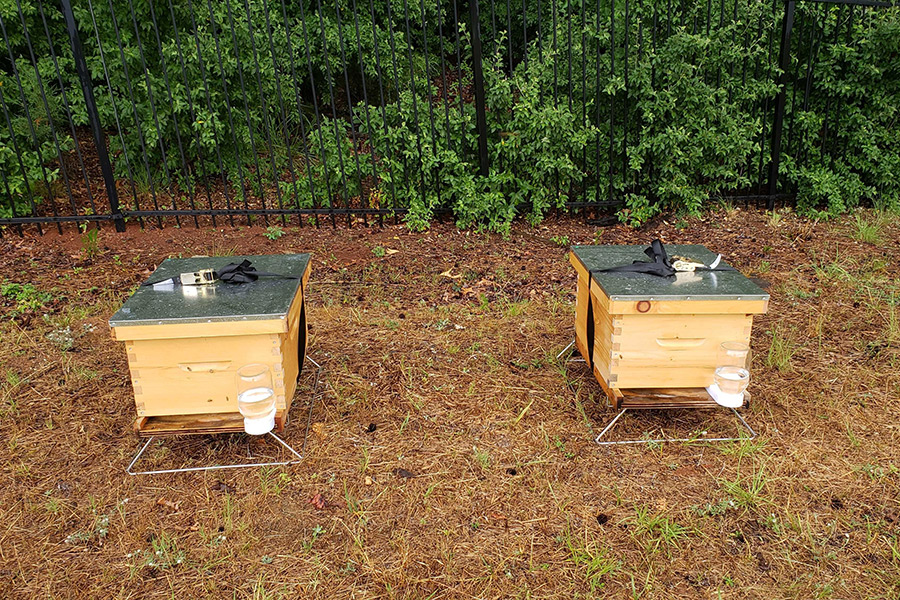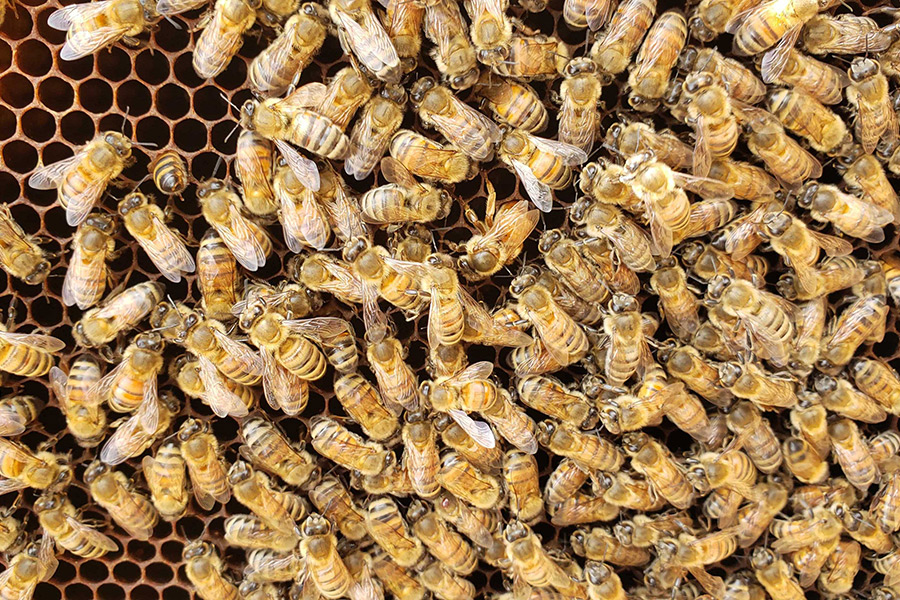Waverly Embraces Sustainability by Housing Honey Bees

What’s the latest buzz at Waverly? Our shopping center is now the proud home of two honey bee hives and 13,500 honey bees! After researching different sustainability projects, we decided to keep honey bees on our property and believe this will be a great fit for our community. We are the only shopping center in the area with honey bees.
Our honey bees are part of the Italian species called Apis mellifera and are bred to be calm and docile. They feed on nectar and pollen, as opposed to being interested in human food. The honey bees have approximately a 30-day lifespan. Their main objective in life is to bring as many resources back to their hive as possible, and they fly up to three miles away to gather food. Our hives will not be directly accessible by the public and are designed in such a way as to greatly minimize any potential contact between the honey bees and Waverly guests.

Honey bees are incredibly important to the human food chain. According to the U.S. Department of Agriculture, one out of every three bites of food come from plants that were pollinated by honey bees. Greenpeace reports that both wild and domestic honey bees are responsible for about 80 percent of all pollination worldwide. One bee colony on its own can pollinate an astounding 300 million flowers every day. In fact, 70 of the top 100 human food crops – which include fruits, nuts and vegetables – are pollinated by bees. These 70 crops account for around 90 percent of the world’s nutrition.
Unfortunately, for the last few decades, honey bee populations have suffered a steep decline. There are a variety of factors behind this change, including the widespread use of pesticides, drought, habitat destruction, air pollution, climate change and nutrition deficit. A beehive typically loses 5-10 percent of its population over the winter as the reproduction of worker bees slows. The hive typically replaces those bees in the spring. Yet a recent nationwide survey conducted by the nonprofit Bee Informed Partnership showed beekeepers across the United States lost 45.5 percent of their honey bee colonies between April 2020 and April 2021. This was the second-highest loss noted since the annual survey began in 2006.
As a result of these major shifts, urban apiaries near shopping centers have sprouted up to contribute to the sustainability of honey bee populations. The Waverly hives offer an ecological advantage in a previously unused space. They will also support our Whole Foods’ initiative of creating a Butterfly and Honey Bee Highway planting area, which is located behind the grocery store. While honey bees pollinate many crops, other pollinators such as moths, butterflies, fireflies and hummingbirds greatly assist in the effort to maintain a diversity of plant life.

Additionally, the hives will create a fun engagement opportunity for our visitors and a chance for everyone to learn more about the wonders of nature! They are located beside the pond on Waverly Walk Avenue. Visitors are welcome to see them at a distance when strolling through our community. If that wasn’t sweet enough, our bees will produce 100 jars of raw, local honey each year. There will also be upcoming educational opportunities featuring the honey bees.
Those interested in keeping up with the honey bees’ activities can follow our MyHive Page. Our new beekeeper, Solomon Jeong, will routinely post updates there in the form of videos, photos and fun facts.



